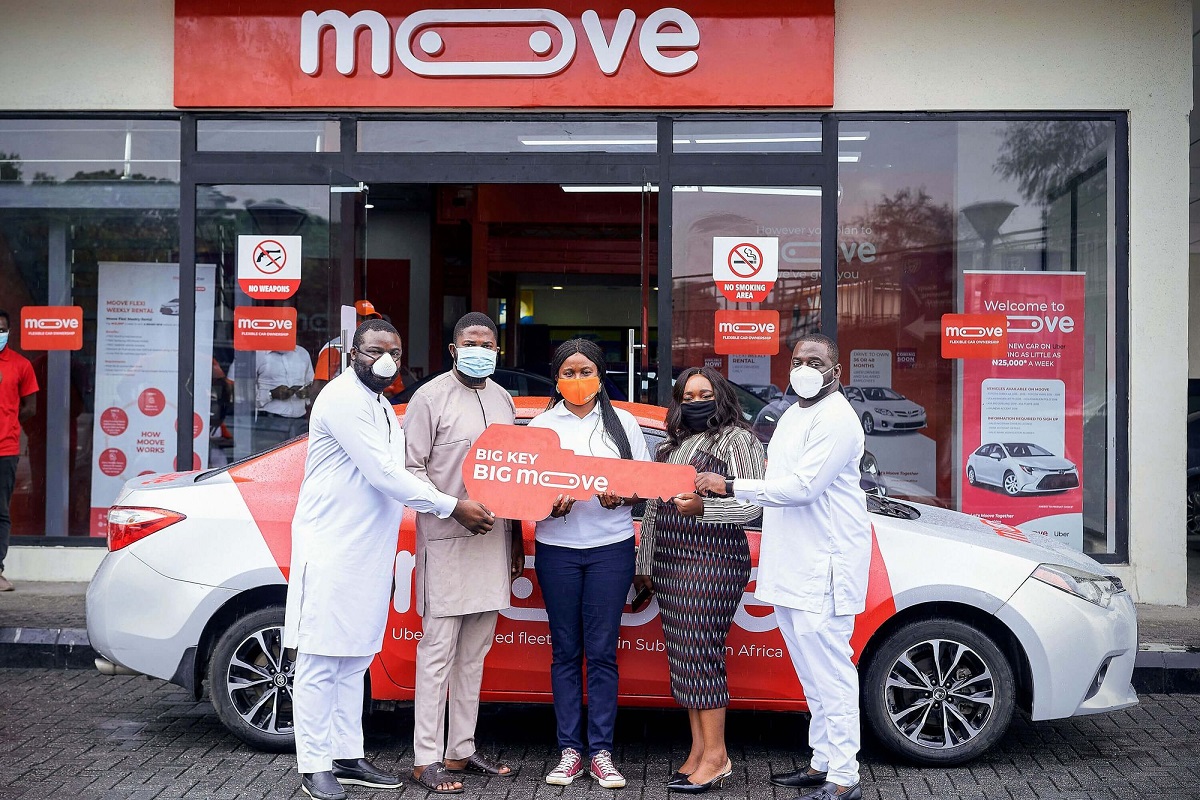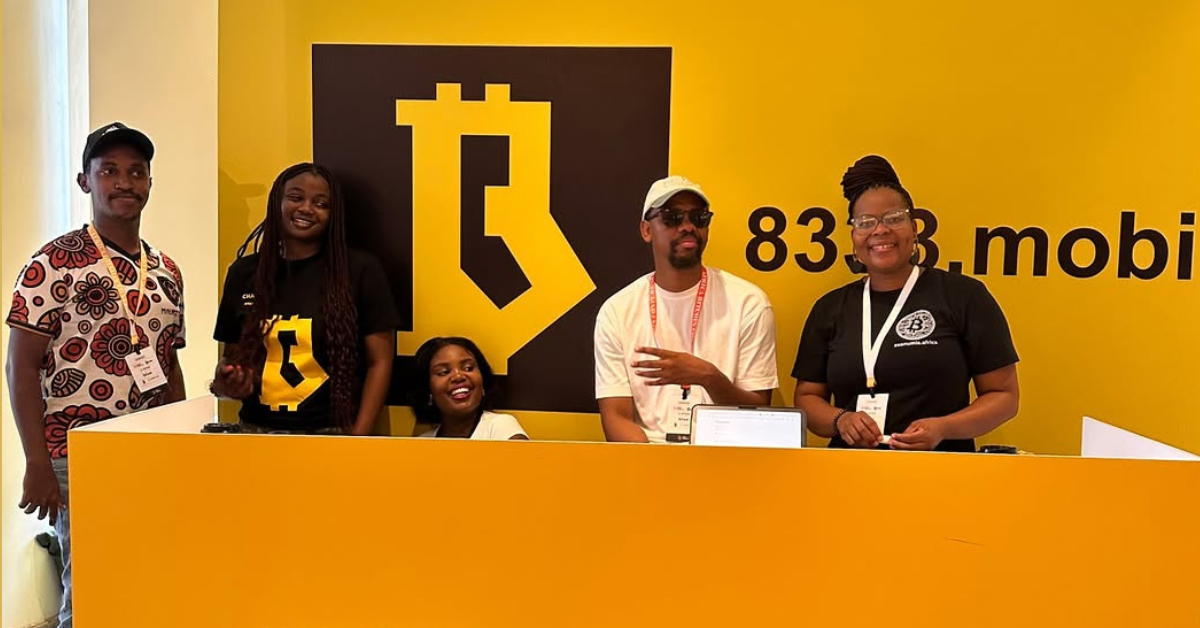Used cars, or tokunbo cars—a slang coined by Nigerians, populate Africa’s mobility sector because of their relative affordability—sometimes costing about a third of the market value of a brand-new car of the same model. These cars are primarily old imports from the US and Europe. In a continent where automobile financing is difficult to come by, these used cars have become the go-to, completing a cycle that reflects the inefficiency of Africa’s mobility sector.
Moove is working to change this narrative by creating paths to vehicle ownership for Africans. Unlike other automobile financing players like Autochek, Moove only finances new cars and leases them to mobility entrepreneurs in a scheme that allows them to complete payment and own the vehicles within four years.
Founded by Ladi Delano and Jide Odunsi, Moove launched in 2020, the same year that the COVID pandemic forced Africa’s mobility sector into a historic decline. However, riding on the rebirth of mobility and car-hailing normalisation, the mobility startup expanded into 13 cities across three continents and raised over $200 million in funding, including a $20 million investment by the British International Investment (BII), the UK government’s Development Finance Institution (DFI).
Over a call with TechCabal, Moove’s sub-Saharan regional manager, Tayo Oyegunle, emphasised how Moove’s distinct business model is placing the company at the forefront of automobile financing in Africa. According to him, Moove uses its in-house technology to access drivers’ performance and revenue history and to create an alternative credit-scoring method that will estimate how productive a driver will be on the road.
“At Moove, we have drastically reduced the barriers to entry for our mobility entrepreneurs. They don’t need deposits or collateral to get a brand new car, and we’re able to do this because of the robust technology we’ve deployed into assessing creditworthiness,” he said.
“Our proprietary technology is designed to understand that a driver’s past behaviour is a tell for his future driving behaviour. By integrating APIs designed by partners like Uber, we can factor in data such as average driving hours and average driver revenue to develop a score that qualifies intending car owners,” he added.
Using this playbook, Moove has created a path to car ownership for thousands of mobility entrepreneurs and gig workers in Africa, similar to what Max is doing with Bolt drivers in Lagos and Abuja. However, this model conveniently leaves out competent and ambitious Africans who do not have an employment history with car-hailing platforms like Uber and Bolt at their touchpoint with these automobile financiers.
To solve this, Moove kicked off what Oyegunle described as a “special project” six months ago. Under this relatively new scheme, mobility entrepreneurs and gig workers who apply for Moove’s automobile financing initiative enter a 4-week trial period. During those weeks, Moove’s technology assesses their driving data to determine if they qualify for vehicle financing. According to Oyegunle, this scheme is currently operational in Nigeria and Ghana and has supported over 1,000 drivers.

Despite Moove’s growth in the past two years, the startup is playing in an underexplored market that has the potential to unlock unexplored opportunities for the business and thousands of gig workers in Africa.
While over 40% of Africa’s 1.4 billion population live in urban areas with accessible roads, car ownership is less than 44 cars per 1,000 people (compared to 816 vehicles per 1000 people in the US). Also, vehicle finance accounts for fewer than 5% of cars purchased in Africa (compared to 92% in Europe).
Granted, the difference in these numbers can be traced to other socio-economic factors that put Africans at a disadvantage. For example, the average yearly income for Africans is about a tenth of Americans’ $84,000 average income. Thus, in developed countries, automobile financing can thrive on a robust income and infrastructural structure. Still, we cannot ignore the potential of vehicle financing in Africa. Moove circumvents this problem by finding a sweet spot between the economics and utility of its financed cars, offering models like Suzuki’s Alto and S-presso, which are affordable and fuel-efficient (with 0.8L engines).
Moove may have started in Lagos, Nigeria, but the firm understands it is solving a global problem and is spreading its wings to reflect that. After operating for two years in the African market, Moove expanded this year into the MENA region through a partnership with SWVL, an Egyptian ride-hailing company. More recently, the startup expanded into India and London as part of its efforts to provide affordable vehicle financing to mobility entrepreneurs, including ride-hailing and e-logistics players.
Moove is pushing for reduced emissions and efficient mobility in all its markets. In African markets like Nigeria and Ghana, Moove finances new fuel-engine cars that offer a better experience than the standard “tokunbo” imports from Western countries. Comparatively, in the UK, Moove operates an entire fleet of brand-new electric vehicles offered to mobility entrepreneurs at a weekly flat rate and no upfront cost.
Since its inception, Moove has enabled a sustainable path for gig workers and mobility entrepreneurs to own new cars within four years. The company is attempting to solve the impossible task of automobile financing in the African market. Last month, it gained third place in LinkedIn’s list of top Nigerian startups. But the startup is not doing this for applause. According to Oyegunle, Moove is here to solve a persistent African problem and empower mobility entrepreneurs to earn, ride, and own efficient cars.




















